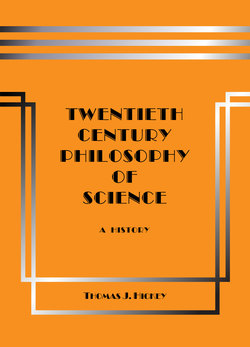Читать книгу Twentieth-Century Philosophy of Science: A History (Third Edition) - Thomas J. Hickey - Страница 42
На сайте Литреса книга снята с продажи.
3.11 Romantic Semantics
ОглавлениеOn the romantic view the positivist semantics may be acceptable for the natural sciences, but it is deemed inadequate for understanding “human action” in the behavioral and sociocultural sciences. Human action considered by the romantic social sciences has subjective meaning for the members of a group or society, because it is purposeful and motivating for their social interactions. Therefore the semantics for these sciences explaining human action must include description of the culturally shared subjective meanings and motivations that the human actions have for the social-group members.
Romantics call the resulting subjective meaning “interpretative understanding”. The social member’s voluntary actions are controlled by this interpretative understanding, the views and values that are internalized and shared among the members of a social group by the so-called “mechanisms” of socialization and social control. This understanding is accessed by the social scientist in the process of his research. Furthermore if the researcher is a member in the society or group he is investigating, the validity of his empathetically based and vicariously imputed interpretative understanding is enhanced by his personal experiences as a participant in the group or society’s life.
